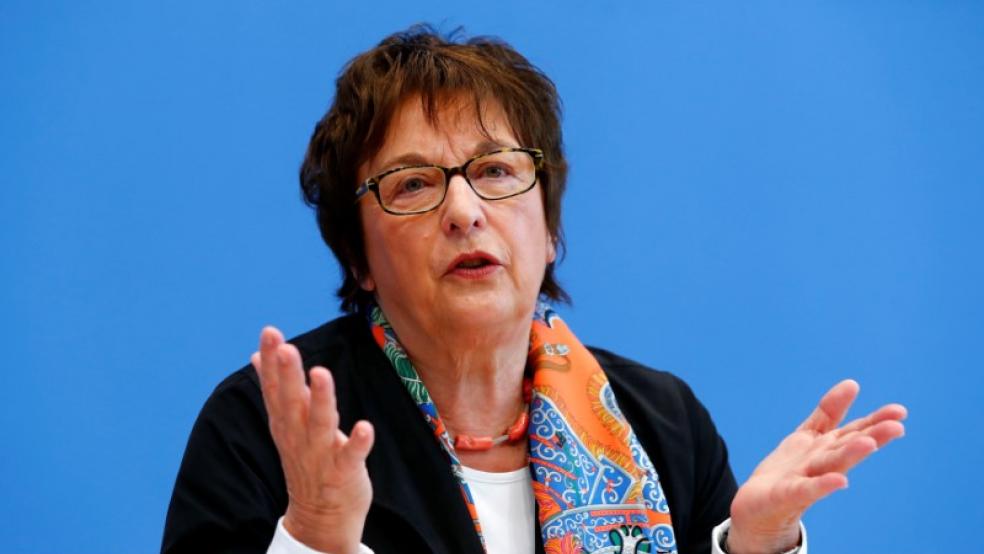BERLIN (Reuters) - The German government has raised its 2018 growth forecast to 2.4 percent from 1.9 percent previously, four people familiar with the updated projections said on Monday.
The revision follows a string of bullish economic data that showed Europe's largest economy is still firing on all cylinders after posting its strongest growth rate last year since 2011.The buoyant economic outlook contrasts sharply with the uncertain political picture as Chancellor Angela Merkel's conservatives struggle to seal a coalition deal with the Social Democrats (SPD) more than four months after a federal election.The government expects exports to grow by 5.3 percent this year and imports to rise by 5.8 percent, the sources told Reuters on condition of anonymity.Employment is forecast to grow by 490,000 to reach a record high of about 44.8 million people this year, while unemployment is seen as falling to 5.3 percent from 5.7 percent in 2017, the sources said.The Economy Ministy declined to comment on the figures.The better-than-expected growth rate and falling joblessness are likely to boost the state's overall tax take, pushing up an already high budget surplus and creating more fiscal leeway to lower taxes and increase state spending.Acting Economy Minister Brigitte Zypries, a senior member of the Social Democrats, will present the outgoing government's updated growth forecast during a news conference on Wednesday. A 'grand coalition' of Merkel's conservatives and the SPD have governed Germany since 2013 and the parties are now trying to relaunch their alliance for a further four years.Sentiment surveys last week showed that business confidence rose unexpectedly in January to match November's record high, while consumer morale brightened heading into February to reach its highest level since 2001.Household spending has become the main source of economic expansion in Germany as consumers benefit from record-high employment, increased job security, rising real wages and low borrowing costs.The consumer-led upswing has been reinforced by a rebound in exports, propelling German economic growth to a calendar-adjusted 2.5 percent in 2017. The economy grew by 2.2 percent if not adjusted for the lower number of workdays last year.The Ifo economic institute is a bit more optimistic than the government, forecasting an expansion of 2.6 percent in 2018. (Writing by Michael Nienaber, Editing by Angus MacSwan)Exclusive: German government raises 2018 growth forecast to 2.4 percent - sources

FABRIZIO BENSCH



